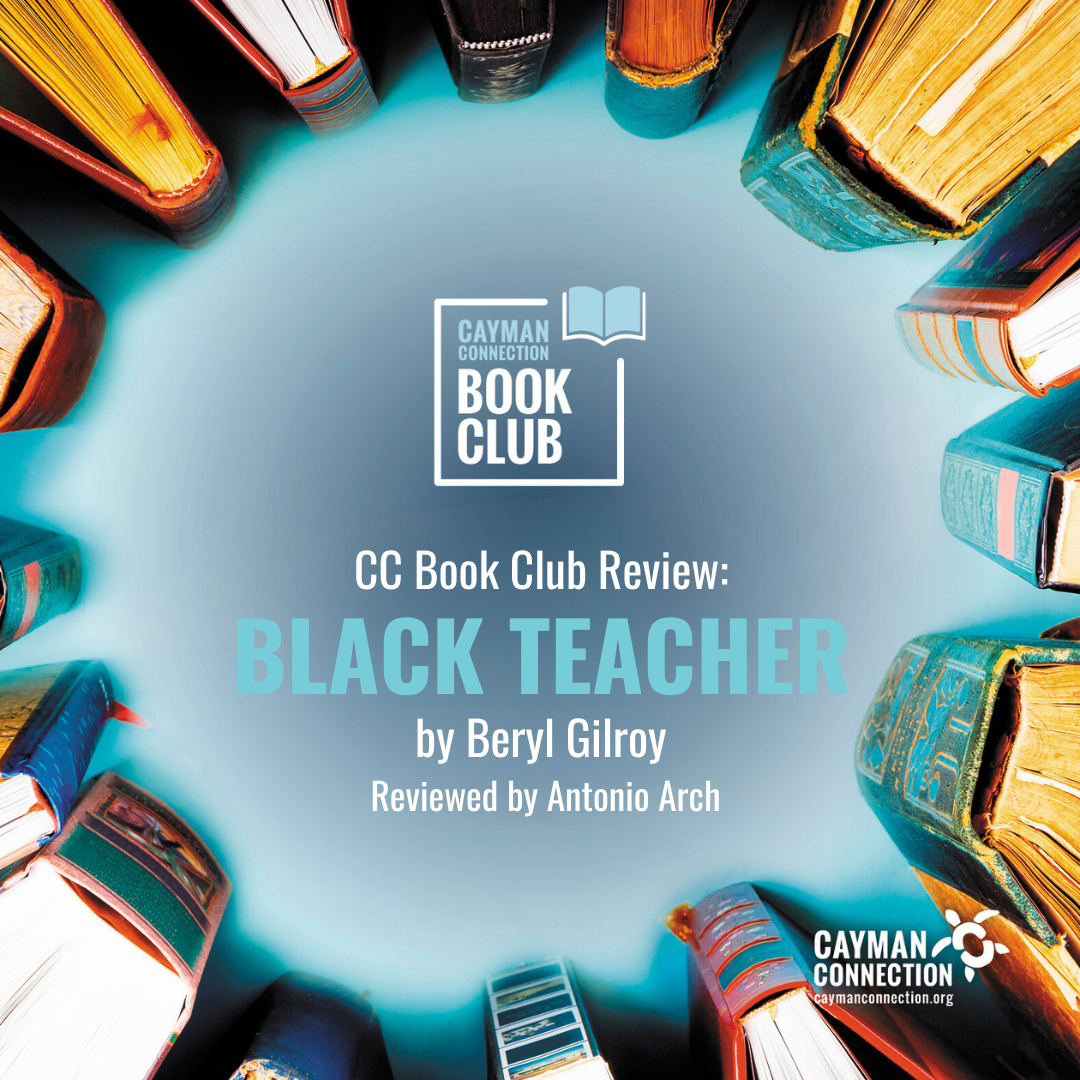Windrush Day:
Exploring Resilience & Diversity through Literature
BLACK TEACHER: Book Club Review by Antonio Arch
It’s been a busy summer here at Cayman Connection as we scramble to put the finishing touches on our plans to launch our Global Book Club’s second year. Some very big news soon-come, but we wanted to pause to acknowledge Windrush Day this week and the seventy-fifth anniversary of the arrival at Tilbury Docks. This week’s events commemorate the arrival of the SS Empire Windrush in 1948, carrying hundreds of Caribbean labourers invited to help rebuild Britain after World War II. It’s a reminder of the immeasurable contributions and enduring legacy of the Windrush generation, an acknowledgement of historical events, and an opportunity to honour the resilience, strength, and cultural diversity that shape the fabric of British society today.

In 1948, British subjects from the Caribbean answered the call for help and began a new chapter in their lives. Many left homes, families, and familiar surroundings to journey towards an uncertain future. The arrival of the Windrush generation, including the educators who answered the call for help, played a crucial role in shaping the post-war landscape of the United Kingdom.

Although we’ve discussed a lot of books since planning began for this year’s Book Club (we also made a list of recommended reading that you can access here), one of the books that stood out for inclusion is a true story, so fascinating and engaging that you might forget a few pages in that you’re not reading a novel. Beryl Gilroy’s 1976 autobiography Black Teacher recounts a profound journey of empowerment. It begins a very few years after the first Windrush arrivals. It’s 1952, and Gilroy has just arrived from Guyana with both education degree and qualifications (a rarity in postwar early education in Britain), taking readers on a profound journey of discrimination, hostility and eventual empowerment, resilience, and the transformative power of education. Gilroy beautifully captures the struggles and triumphs of a remarkable life dedicated to empowering generations of students.
Windrush Day affirms the invaluable cultural enrichment from the Caribbean, the vibrant traditions, language, music, and cuisine that have become integral parts of British culture, enriching and diversifying society. The Windrush generation’s descendants have made significant contributions in fields such as arts, literature, sports, politics, and business, shaping the multicultural landscape of modern Britain.
Windrush Day serves as a poignant reminder of the enduring legacy of the Windrush generation and their immeasurable contributions to British society. We honour their resilience, bravery, and determination in adversity by celebrating stories like Beryl Gilroy’s. This week’s events emphasize the significance of cultural diversity, fostering a society that values and embraces different perspectives, experiences, backgrounds, and stories. As we commemorate Windrush Day, let us continue to work towards a more inclusive and equitable society where the rights and contributions of all individuals are cherished and celebrated. Black Teacher tells the true story of a pioneer of twentieth-century British education through evocative, deeply resonant memories, immersing readers in the vivid world she recreates. Through her words, we witness the real challenges faced by a black teacher from the Caribbean, who navigates a predominantly white education system while also contending with the racial prejudices prevalent in the society of the day. We accompany her through the trials and tribulations of her career and witness her unwavering commitment to her students and unflinching belief in the transformative power of education. We found everything about Black Teacher authentic, heartfelt, and infused with compassion while confronting complex themes of identity, racism, and the quest for equality. Gilroy fearlessly explores the inherent biases and prejudices that permeate educational institutions and the broader society. She sheds light on the challenges faced by marginalized communities, and her poignant insights encourage readers to critically examine the systemic barriers that still persist today.
The book is both a celebration of the immense impact teachers can have on their student’s lives, and the impact that the Windrush arrivals played in the transformation of Britain. Gilroy emphasizes the importance of nurturing a child’s individuality, fostering self-esteem, and providing a safe space for learning and growth, beautifully capturing the transformative influence a dedicated teacher can wield, inspiring hope and instilling the belief that education can be a powerful catalyst for change. This candid account of her experiences will leave readers inspired, moved, and compelled to continue championing equality and justice in education. Beryl Gilroy’s legacy as an educator and writer shines brightly, and her words will undoubtedly continue to inspire future generations.
The Windrush generation made significant contributions to various sectors of British society. They filled labour shortages in transportation, healthcare, construction, and public services industries. Their hard work, dedication, and unwavering spirit played a pivotal role in rebuilding the nation and contributing to its economic growth. We hope you’ll join us for another year of Cayman Connection’s Book Club!
